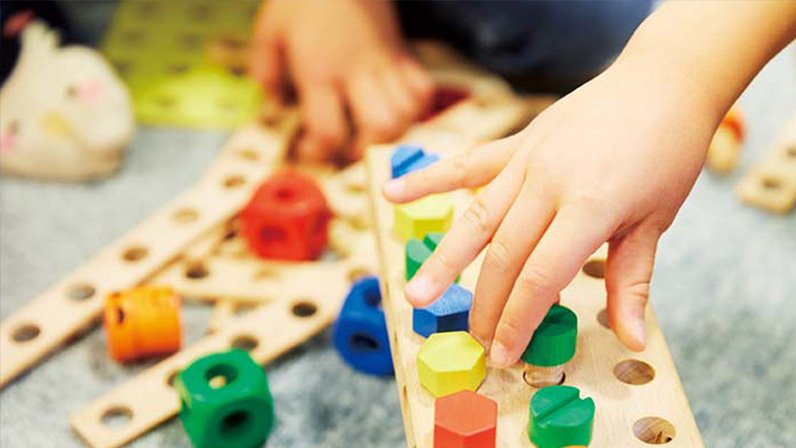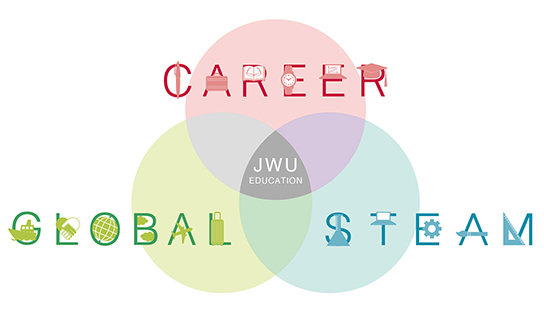Analyzing the economy and society from the perspective of “quality of life”
Towards the fostering of people capable of taking action for a happy future
Focusing on the economics of issues in people’s daily lives, the Department fuses and analyses domestic science, political science and business administration, exerting its efforts in research and education to search for the ideal nature of a sustainable economy and society.
Features of the Department
The learning concept: “quality of life” perspective and economics
The Department is a place for the fully-fledged study of economics. Simultaneously, we place a high value on taking a perspective that encompasses many positions such as consumers, workers, family members and community residents. From near-at-hand issues to global issues, amid a free and unrestricted study atmosphere students will become equipped with looking at things from multiple perspectives.
From their second year students select one of two major courses
On the Economics and Management Course students think about economic and social issues centered mainly on deepening their specialism in economics and business administration, and on the Public and Life Course, while keeping economics as the base, they consider social and life problems from a broad perspective that includes domestic science, political science and law. In the academic year 2022 two new small-class active learning subjects were established, Marketing Theory II and Behavioral Economics, and students are able to take both subjects.
Support for the acquisition of a qualification that makes good use of individuality
The University provides a course for those preparing to take the examination to qualify as a consumer affairs advisor, an occupation that has recently drawn much attention from both companies and local governments. The qualification also helps those aiming to become teachers of home economics, social studies or civics at junior high or high schools.
The four years of study at the Department of Social and Family Economy
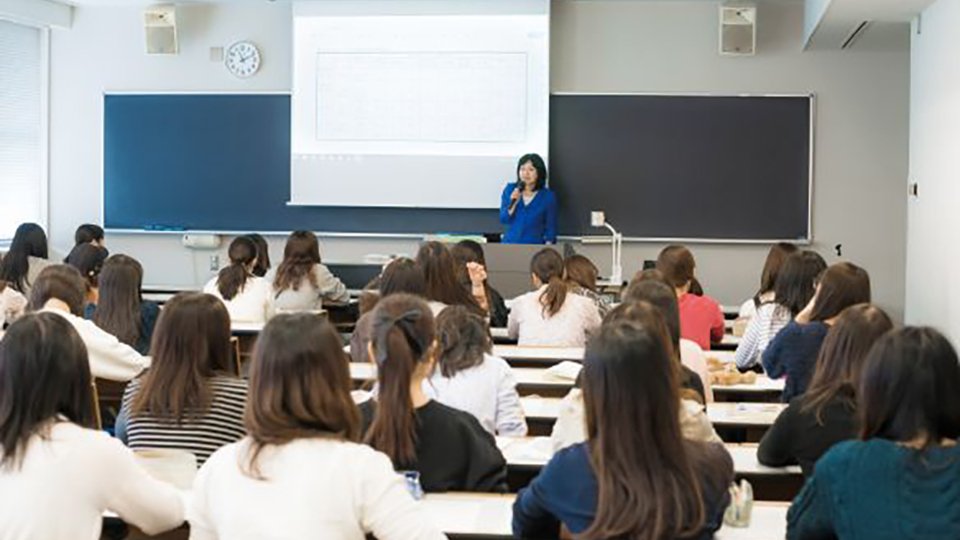
First year: Creating a foundation for learning, study and research of the basics of economics
Students learn widely about social science areas in a way that links in with their selection of courses for their sophomore year. In particular, every effort is made to fully equip them with the basics of economics, and create a platform for learning.
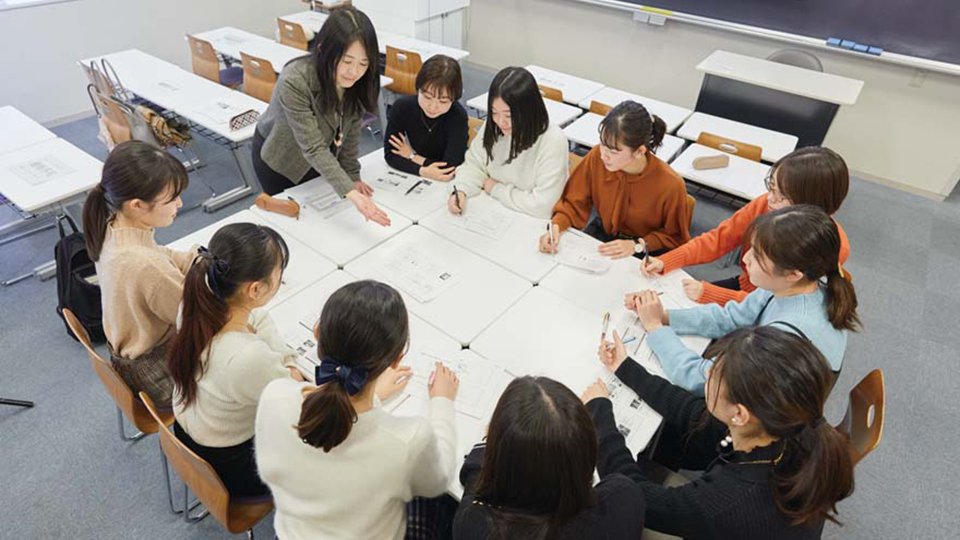
Second year: Students select courses and acquire the basis knowledge about specialized subjects
The selection of courses is conducted, and the specialized subjects of the courses are studied from the very basics up. An emphasis is also placed on acquiring the English language skills required in international society.
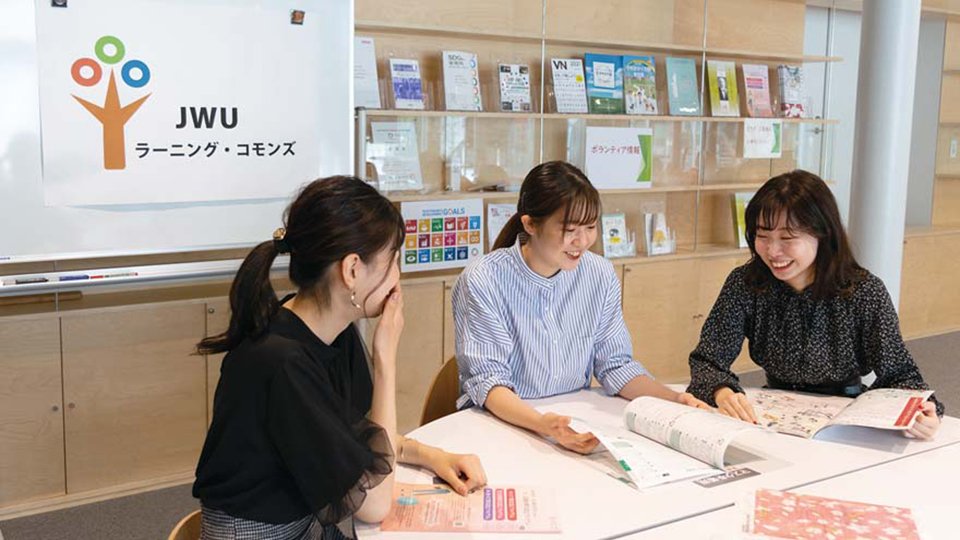
Third year: Through graduation study seminars in small groups students’ thinking is deepened and their perspectives broadened
Graduation study seminars in small groups start. While exchanging opinions with each other students learn about gaining a multifaceted perspective that incorporates the views of others, and practice thinking about things in a systematic manner.
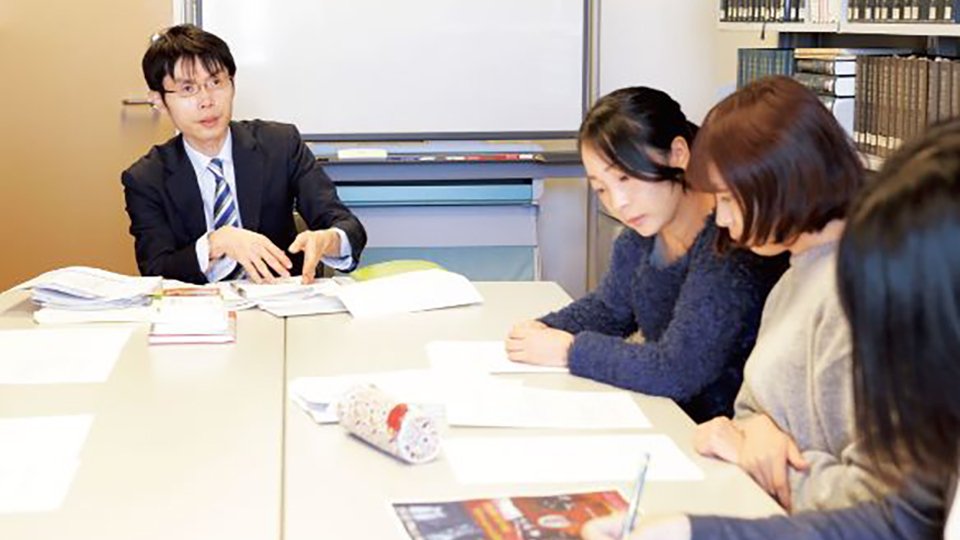
Fourth year: Students exercise a comprehensive range of skills and complete their graduation theses
Students complete their doctoral theses by exercising their ability to search for solutions to issues, data analysis skills, ability to express their own opinions through presentations and English language abilities.
Class introduction
Public and life governance theory/second year
New perspectives arise from the criticism of the current economy and politics
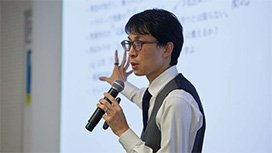
Associate Professor
Political science and the history of thought
Based on what students learn in the outline of political science class in their first year, the objective of the public and life governance theory class is to further clarify the intricate links between contemporary economics, politics and administration. With the overall theme of “what is neoliberalism?” an introduction is provided of the historical background to the emergence of neoliberalism, its theoretical characteristics and points of issue. In addition, through the explanation of how neoliberal thinking and systems have come to permeate an array of aspects of our lives such as the burden of housework and education, I talk about the importance of a perspective that critically re-ascertains apparently minor matters in our daily lives.
Something that I am conscious of in my teaching is to provide plenty of opportunity for student output in order to avoid the classes becoming one-way lectures. Having explained the basics of academic writing, the students are asked to compose short essays after every few classes interwoven with the provision of individual advice on writing. This does not merely end with the act of writing; I return all the short essays to the students having written comments and points for improvement on them. Through input and output from a social sciences perspective, students will ascertain the depths of social problems while improving their own skills of expression as best they can.
Faculty member introduction
Faculty members with a wide range of specialties provide education.

